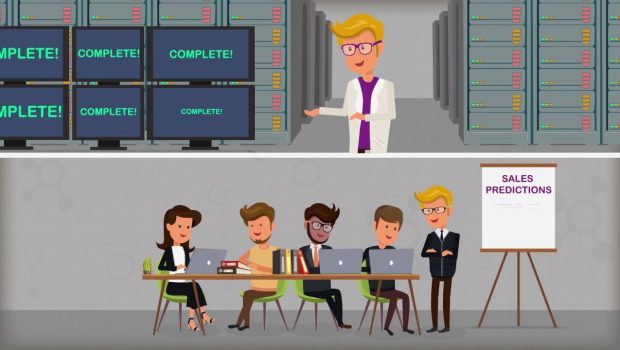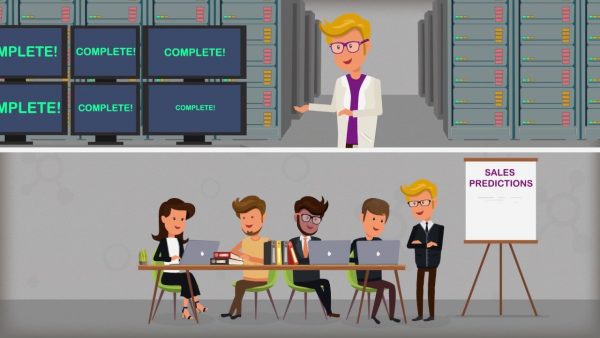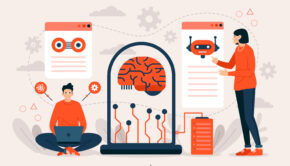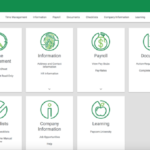What will AI do for Sales and Retail in the Following Decade?
With the beginning of a fresh new year and a fresh new decade, in comes fresh new innovations and ideas that will lead the way forward. The past decade has been remarkable, to say the least. The numerous achievements that we have achieved collectively is a monumental feat and the pace of innovation doesn’t seem to be slowing down anytime soon.
Of all of our achievements, one in particular stands tall as far as overall maturation goes. I am, of course, referring about the developments made in the fields of AI and automation. These advancements are nothing to scoff about and this could be the single most important achievement of this decade.
AI has been a major driving force in a lot of industries. It works in the background without any intrusion to the workforce but at the same time is powerful enough to be present in mission-critical sectors of the organization.
AI is part of of business-oriented tools that interface between humans and machines. It is the collective intelligence that is leading the way forward to making cutting edge virtual tools which are used in a myriad of industries.
This is why adoption of AI based tools and software in the retail space has widely been considered a godsend. Access to AI driven insights has led to the creation of some of the best sales automation tools are which are indeed impacting how efficiently sales are handled and how the overall retail experience is improved for the end customer.
How will AI adoption change things this decade?
When it comes to sales and retail, both are arguably in a constant fight with time and opportunity. Teams need to meet their sales targets and at the same time allure customers with attractive offers.
On the other hand, the management is responsible on how to optimize prices and diversify product selection in order to maximize profits and gain customer loyalty.
In this busy cycle, a single bad decision or holdup can cost a lot of money over time, which is why some amount of automation becomes absolutely crucial. This is why we must look at what could change in the future if AI becomes more mainstream among organizations.
Here are 5 crucial development in existing technologies that will make a major impact:
1. Smarter Sales Predictions
Seeking out that one opportune moment that could turn the tide of the sales has been the subject of wonders for numerous retail businesses. AIs are excellent when it comes to mining data from multiple sources. Analyzing the data from these historical from collected data is invaluable when it comes to exploiting sales opportunities.
The big leap that is predicted to lead this decade is that, this existing technology is going to get even more efficient, thanks to the progress in DevOps, further optimizing the quality of automation tools and AI algorithms. An efficient AI led Neural Network will further optimize the retail channels and can theoretically boost sales by 4 times as much. Predictive Analysis of retail data is unquestionably the most important innovation that can mature this decade.
2. Augmented Reality In Retail Space
Augmented reality has long been a necessity in the retail space. The applications of a full fledged real time AR experience in the retail market-space would be invaluable in making shopping an immersive experience.
The current major limitation with AR related applications is that it takes massive amounts of computational power to work. Which is where AI could prove invaluable by optimizing unique customer experiences and presenting relevant sales information to the customers on the fly.
AI could also reduce computational requirements for AR applications by intelligently allocating resources where and when its required and making the system consume less resources overall.
Augmented Reality still might be a few years behind but with the current advances, it won’t be long before we see this working steadily.
3. Better Integration Between Humans and AI
In these recent times, AIs have got cognition, which means that it has evolved from being a dumb tool to being smart.
Developments like improved natural language processing, error correction and optimizing workflow, etc. have heavily contributed to where we are now. Coming to the retail/sales workspace, AI could be equally useful for both customers and employees. Here’s how:
- It can impact the overall customer shopping experience with interactive bots and internal navigation in places like malls and other big outfits.
- AI can automate tasks such as sending out notifications to customers so that they don’t miss out on offers and exciting opportunities.
- A decent AI led neural network can automate a lot of mundane task around the establishment and assist employees in delivering a smoother experience to customers. It can also divert workforce to where its most required, thus saving up on time and resources.
4. Sales Automation 2.0
This is also arguably the next big thing to happen in the realm of sales. As stated earlier, it is all backed by big data, faster automation tools and more efficient processes.
However sales now isn’t just related to selling off-the-shelf items, but it can be further divided into sales support, returns, customer acquisition-retention and so on. And so here is how AI will impact it:
- Initiating independent process for sales/returns for customers, reducing time required.
- Sending out promotions, offers, cold emails and other bits of sales promotions to customers, thereby creating awareness for any ongoing campaigns.
- Handling customer disputes and queries, thereby prompting immediate reaction from the management.
- Assisting the organization with relevant sales enablement data so that they can engage their customers better.
- Curating personalized shopping lists for people. Helping them getting what they want based on past data.
5. Other areas which AI will improve
- AI can be used for improving supply chains and logistics: Getting items just in the right time from suppliers, to minimize logistical costs and unnecessary hoarding.
- For consumers, AI based algorithms can fetch prices across multiple platforms and present the lowest and cheapest offers to the customer, along with any promotional discounts.
- Creating shopping trends by referencing data across multiple databases.
- Generate new sales leads by intelligently targeting ads to relevant groups of people. Thereafter scoring those leads for the organization to follow.
- More efficient data collection, analysis and storage. Improvement in data collection will ultimately de-clutter databases and speed up data visualization in real time.
- AI voice assistance as well as natural language processing will get more mainstream. Voice assistants will ultimately be able to identify multiple languages in real time.
Conclusion
AI and machine learning are definitely the way forward. Their adoption rates are expected to surge past 500% compared to today by 2030. AI will evolve from its role of processing demanding workloads to a necessity on top of which businesses will be built. This goes to show just how powerful these systems are and how powerful they are going to be in the future.

















